Ivermectin: Uses, Dosage, Safety, and Where to Buy It Affordably

1. What is Ivermectin?
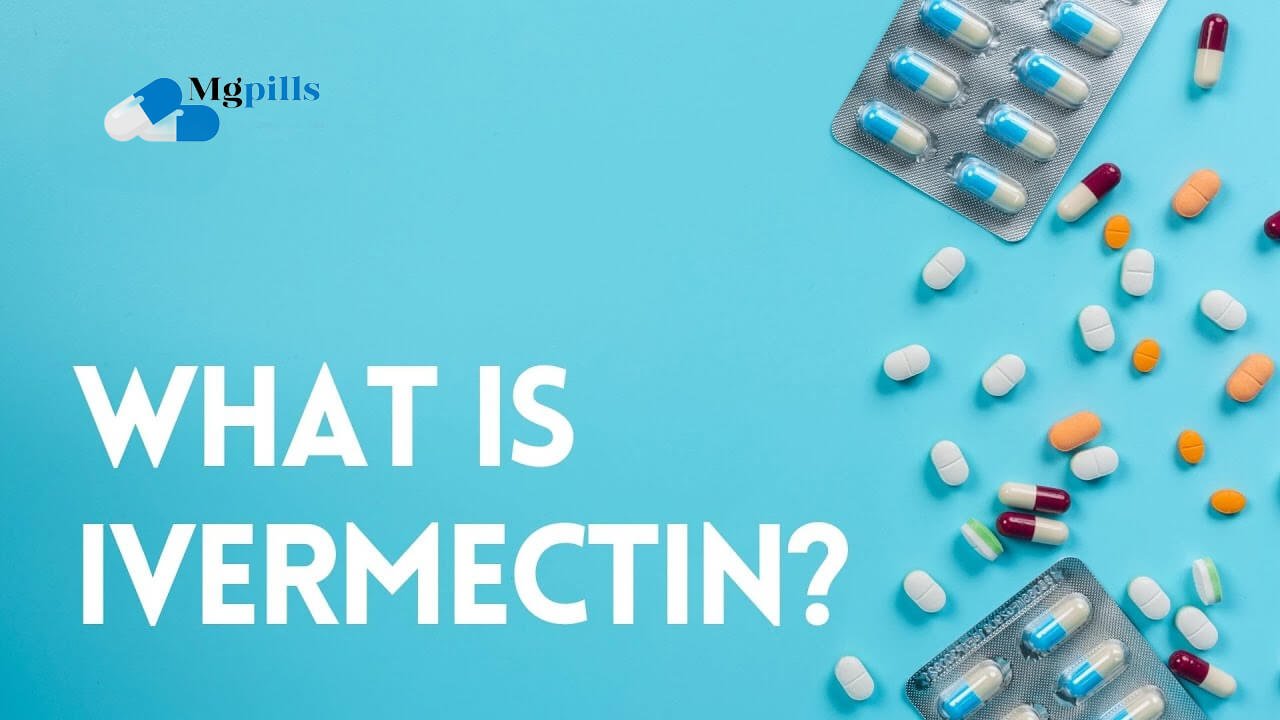
Ivermectin(Stromectol) is a widely recognized medication used primarily to treat parasitic infections in humans and animals. Initially discovered in the 1970s, this FDA-approved drug has been extensively studied for its antiparasitic properties and is now being researched for potential applications in cancer treatment.
With increasing global interest, many people are seeking reliable sources to buy Ivermectin tablets and pills affordably. This comprehensive guide will cover everything from its history, dosage, safety, and ongoing research to its availability and purchasing options.
History and Discovery of Ivermectin
Ivermectin pills are initially a veterinary drug, became a major medical breakthrough in the 1970s-80s, effectively treating parasitic diseases like river blindness. Its impact continues, with ongoing research exploring potential cancer treatments.
Who Discovered Ivermectin?

Ivermectin was discovered by Dr. Satoshi Ōmura, a Japanese microbiologist, and Dr. William C. Campbell, an Irish-American parasitologist. Their pioneering research on antiparasitic treatments earned them the Nobel Prize in Physiology or Medicine in 2015. The discovery of Ivermectin revolutionized the treatment of parasitic infections in both humans and animals, significantly reducing the prevalence of diseases such as river blindness and lymphatic filariasis.
When Was Ivermectin Discovered?
The research that led to Ivermectin began in the 1970s when Dr. Ōmura isolated a unique strain of bacteria from soil samples in Japan. Dr. Campbell and his team at Merck & Co. later identified its antiparasitic properties. By the early 1980s, Ivermectin was introduced as a treatment for parasitic infections in animals, followed by its approval for human use in 1987. Since then, it has saved millions of lives, particularly in regions where parasitic infections are prevalent.
What is Ivermectin Derived From?
Ivermectin is derived from Streptomyces avermitilis, a naturally occurring bacterium known for its potent antiparasitic properties. This bacterium produces avermectins, which were chemically modified to create Ivermectin, a safer and more effective drug.
Where is Ivermectin Found in Nature?
The Streptomyces avermitilis bacterium was first isolated from soil in Japan. It thrives in tropical and subtropical environments, where it naturally produces compounds that help combat parasitic infections. This discovery highlights the power of nature in developing life-saving medications.
Forms of Ivermectin
Ivermectin is available in tablets, liquid, and topical forms for different medical needs. Initially for veterinary use, it is now essential for human treatments. Each form has specific uses and safety guidelines.
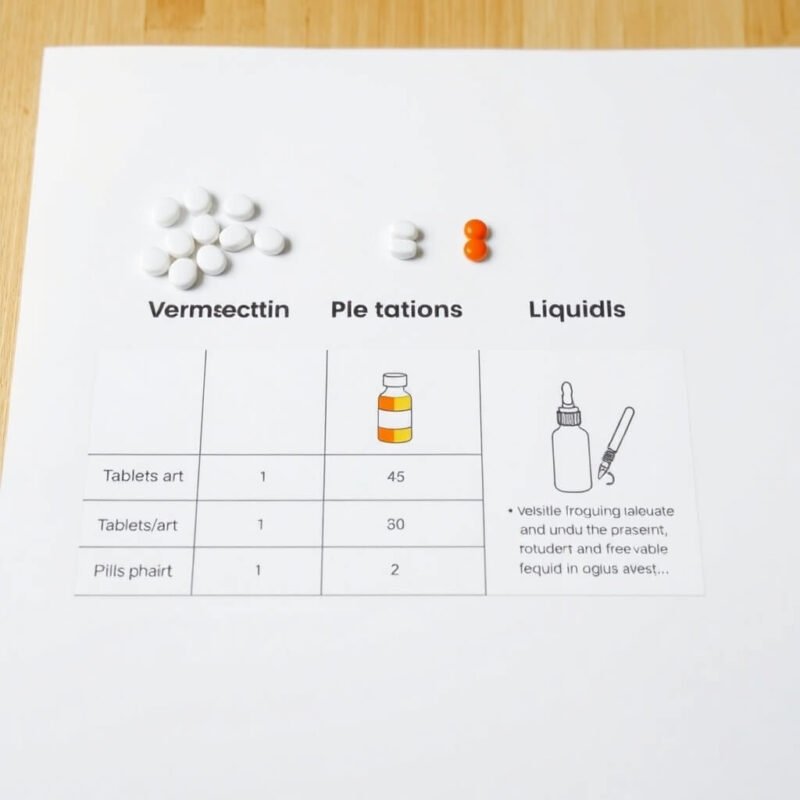
Ivermectin Tablets vs. Ivermectin Pills
Here’s a table comparing Ivermectin tablets and pills:
| Feature | Ivermectin Tablets | Ivermectin Pills |
| Definition | Solid, compressed form of Ivermectin | General term for oral medication, including tablets and capsules |
| Common Use | Prescribed for parasitic infections like river blindness and strongyloidiasis | Often used interchangeably with “tablets,” but not a specific medical term |
| Dosage Form | Fixed-dose, taken as per body weight | Can refer to different oral forms, including tablets or capsules |
| Administration | Usually taken as a single dose with water | Depends on the specific form of medication |
| Clarity in Medical Use | Specifically refers to Ivermectin in solid tablet form | Less precise, as “pills” may include other formulations |
Liquid Ivermectin for Humans
Liquid Ivermectin is another formulation primarily designed for veterinary use, but it can be prescribed to humans in certain cases. This form is usually administered for parasitic infections that require precise dosing based on weight. Because liquid Ivermectin concentrations vary, it must only be taken under strict medical supervision to prevent overdose or toxicity.
Uses of Ivermectin
Human and veterinary Ivermectin share the same active ingredient but differ in formulation. Veterinary versions contain additional compounds and higher doses meant for large animals, making them unsafe for human consumption. Using veterinary Ivermectin can lead to toxicity and severe health risks.

Ivermectin for Humans vs. Veterinary Use
Difference Between Human Ivermectin and Veterinary Ivermectin
| Intended Use | For treating parasitic infections in humans | Designed for animals like cattle and horses |
| Formulation | Contains only safe ingredients for human use | May contain additional compounds unsafe for humans |
| Dosage | Calculated based on body weight (150-200 mcg/kg) | Higher doses formulated for large animals |
| Safety | Approved by the FDA for human use | Not approved for human consumption |
| Potential Risks | Safe when taken as prescribed | Can cause toxicity, neurological effects, or poisoning in humans |
| Availability | Requires a prescription in many countries | Available over-the-counter for veterinary use |
| Usage Recommendation | Should only be used under medical supervision | Not recommended for human use due to health risks |
Cattle Ivermectin Dosage for Humans
Some people mistakenly believe that cattle Ivermectin can be used as a substitute for human Ivermectin. However, this practice is highly discouraged due to differences in concentration, inactive ingredients, and dosing requirements. Veterinary formulations are often much stronger, leading to potential poisoning, neurological effects, or organ damage if taken by humans. It is always advisable to use only the prescribed human version of Ivermectin under medical supervision.
Ivermectin for Cancer

Ivermectin, primarily known for its antiparasitic properties, has gained attention for its potential role in cancer treatment. Researchers are exploring its ability to disrupt cancer cell metabolism, inhibit tumor growth, and enhance the effectiveness of existing therapies. While promising studies have emerged, Ivermectin is not yet an approved cancer treatment. Ongoing clinical trials aim to determine its safety, efficacy, and potential protocols for use in oncology.
Ongoing Ivermectin Cancer Clinical Trials
Recent studies indicate that Ivermectin may target cancer cells by interfering with their metabolic pathways and reducing their ability to spread. Researchers are examining its effects on various cancers, including breast, lung, and colorectal cancer. However, these trials are still in early stages, and further data is needed before it can be recommended as a treatment.
Ivermectin and Prostate Cancer Research
Some research suggests that Ivermectin may play a role in prostate cancer treatment by inhibiting tumor growth and promoting cancer cell death. Although initial studies are promising, no official medical guidelines currently support its use for prostate cancer, and more trials are required to establish its effectiveness.
Potential Ivermectin Prostate Cancer Protocol
Preliminary findings indicate that Ivermectin may be integrated into prostate cancer treatment strategies, potentially in combination with other therapies. However, without extensive clinical validation, it remains an experimental approach. Patients should only consider such treatments under the guidance of a medical professional.
Other Emerging Uses
Ivermectin for Enlarged Prostate
Preliminary research indicates that Ivermectin might have applications in reducing prostate enlargement, though more studies are needed.
Ivermectin Dosage and Safety
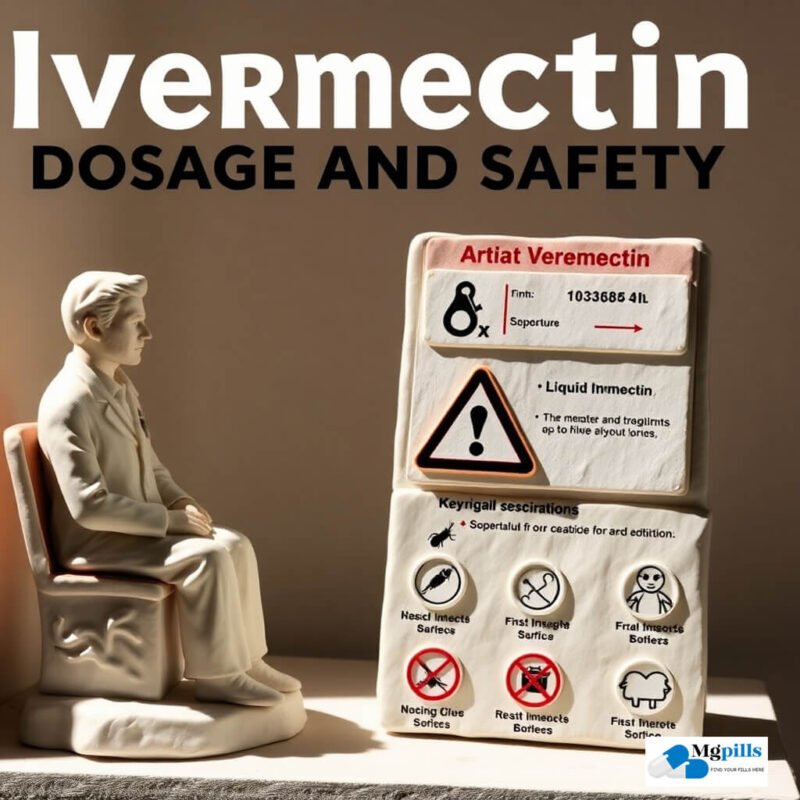
Beyond its well-established role in treating parasitic infections, Ivermectin is being explored for various emerging medical applications. Researchers are investigating its potential in managing inflammatory conditions, viral infections, and even neurodegenerative diseases. While some studies suggest promising results, these applications remain experimental and require further clinical validation before being widely recommended.
Ivermectin Dosage for Humans
Ivermectin dosage for humans is carefully determined based on body weight and the condition being treated. It is crucial to follow medical guidelines to ensure safe and effective use. While most prescriptions involve a single dose, some conditions may require repeated or adjusted dosages. Consulting a healthcare professional before taking Ivermectin is essential to avoid complications.
Ivermectin Dose for Humans Based on Weight
- Standard Dosage: 150-200 mcg per kg of body weight.
- Administration: Typically taken as a single dose.
- Medical Supervision: Exact dosage is prescribed by a doctor.
- Purpose: Used for treating parasitic infections.
- Safety: Ensures effectiveness while minimizing risks.
Liquid Ivermectin Dosage for Humans
Liquid Ivermectin is prescribed when tablets aren’t suitable, with dosage based on weight and health conditions. It must be taken under medical supervision to avoid toxicity. Proper measurement is crucial, and self-medication with veterinary Ivermectin is dangerous. Always consult a doctor before use.
How Long Does Ivermectin Take to Work?
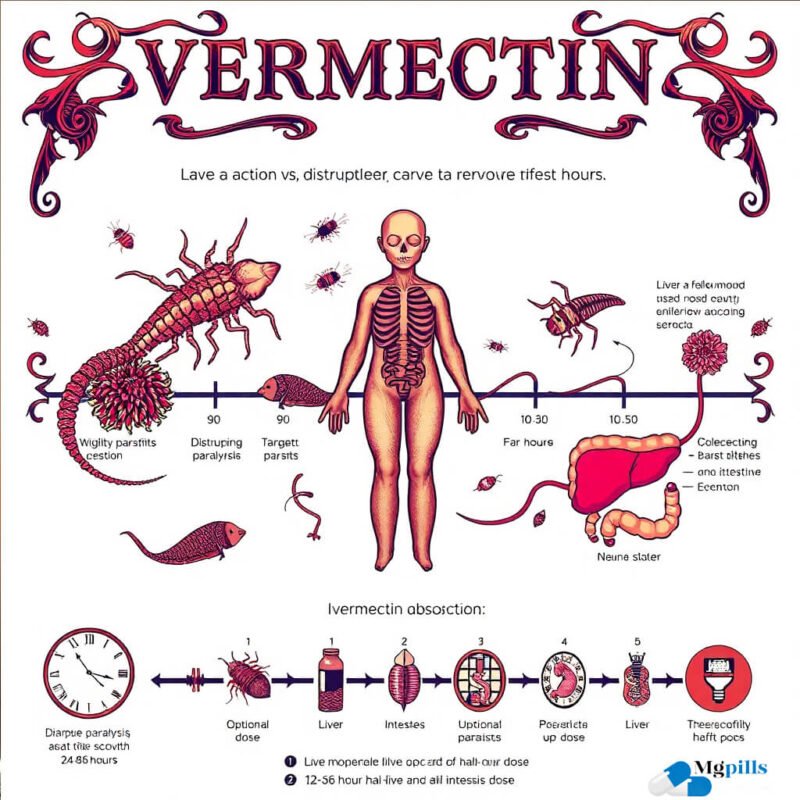
How Long Until Ivermectin Starts to Work?
Ivermectin pills begins working within a few hours after ingestion. Once absorbed into the bloodstream, it quickly targets parasites by disrupting their nervous system, leading to paralysis and eventual death. However, the speed of action may vary depending on the type of infection, the patient’s metabolism, and the dosage taken. Some individuals may notice symptom relief within the first day, while others might take longer to experience improvements.
How Long Does It Take for Ivermectin to Kill Parasites?
Parasites typically start dying within 24 to 48 hours after taking Ivermectin. The drug continues to work over several days, eliminating parasites from the body. For some infections, such as strongyloidiasis or scabies, a follow-up dose may be required to ensure complete eradication. The effectiveness of Ivermectin pills also depends on factors such as the severity of the infection and the patient’s immune response. In cases of persistent symptoms, doctors may recommend additional treatment or supportive care.
How Long Does Ivermectin Stay in Your System?
Ivermectin has a half-life of approximately 12 to 36 hours, meaning that half of the drug is eliminated from the body within this timeframe. However, traces of Ivermectin may remain in the body for several days before being completely metabolized and excreted. The drug is primarily processed by the liver and expelled through feces. The duration Ivermectin stays in the system can vary based on an individual’s liver function, metabolism, and overall health. Drinking plenty of water and following medical guidelines can help the body efficiently process the medication.
Is Ivermectin Safe?
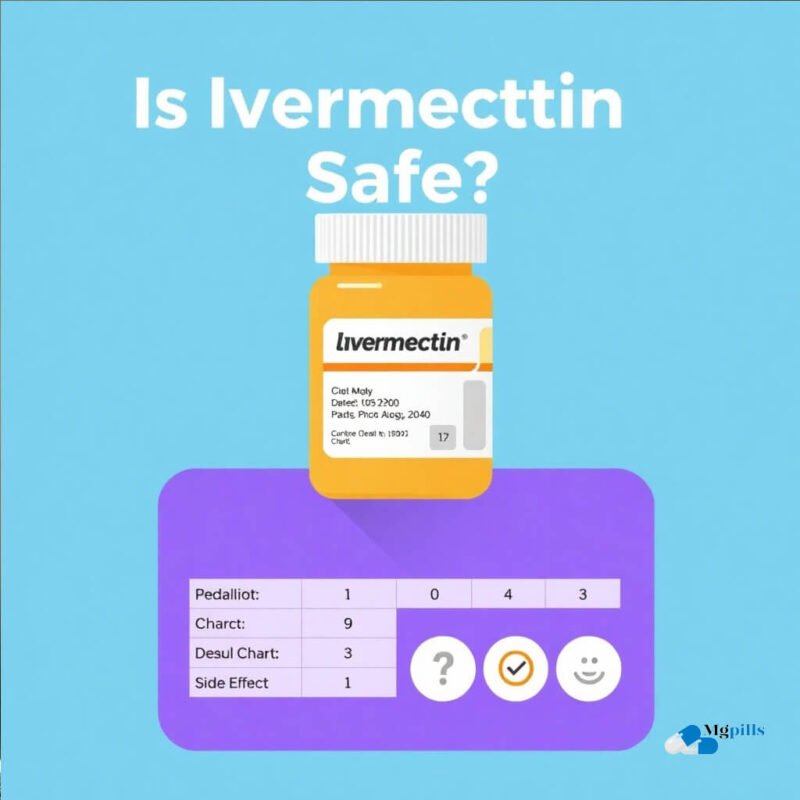
Ivermectin pills are generally considered safe when taken as prescribed by a healthcare professional. It has been widely used for decades to treat parasitic infections in humans and animals. However, like any medication, it comes with potential risks if misused. Proper dosing, medical supervision, and adherence to prescription guidelines are essential for ensuring safety.
Do You Need a Prescription for Ivermectin?
In most countries, Ivermectin requires a doctor’s prescription for human use. This regulation ensures that patients receive the correct dosage based on their weight, medical history, and specific condition. While veterinary Ivermectin is available without a prescription in some places, it is not suitable for human consumption due to differences in formulation and concentration.
Is Ivermectin Prescription Only?
Yes, in the USA and many other regions, Ivermectin is a prescription-only medication. This restriction helps prevent self-medication, which can lead to incorrect dosing, potential drug interactions, or adverse effects. While some online pharmacies claim to offer over-the-counter Ivermectin, it is crucial to purchase from reputable sources to ensure product safety and authenticity.
Potential Side Effects and Safety Precautions
Ivermectin tablets are well-tolerated by most people, but some may experience mild side effects such as nausea, dizziness, diarrhea, or skin irritation. Severe side effects, including neurological symptoms like confusion or seizures, are rare but should be reported to a doctor immediately. Individuals with liver disease or a history of allergic reactions to Ivermectin should consult their healthcare provider before use. Proper hydration and adherence to prescribed doses can help minimize side effects.
Where to Buy Ivermectin?
Ivermectin tablets are available through various pharmacies, both online and in physical stores. However, due to its prescription-only status in many countries, it is essential to obtain it through legal and reputable sources. Purchasing from unverified sellers can lead to counterfeit or substandard products, posing serious health risks.
Where Can I Buy Ivermectin?
Online vs. Physical Pharmacies
| Convenience | Order from home, 24/7 availability | Requires visiting a store in person |
| Pricing | Often lower prices due to discounts | Prices may be higher due to overhead costs |
| Prescription Requirement | May require online prescription verification | Requires a physical prescription from a doctor |
| Delivery | Home delivery available | No delivery, must pick up in-store |
| Product Authenticity | Risk of counterfeit products if not reputable | Typically sells genuine, verified products |
| Consultation | Some platforms offer online doctor consultations | Face-to-face consultation with a pharmacist |
| Availability | May have wider stock availability | Stock may be limited or sold out |
| Regulation | Must be purchased from licensed sources | More strictly regulated by authorities |
Importance of Buying from Reputable Sources
· Always buy Ivermectin from licensed pharmacies or authorized online sellers.
· Check for proper certifications to ensure product authenticity.
· Read customer reviews to verify the reliability of the seller.
· Avoid marketplaces or unregulated websites that may sell counterfeit or low-quality products.
How to Get Ivermectin?
To get Ivermectin, consult a doctor for a prescription, as it is required in most countries. Purchase from licensed pharmacies or reputable online sellers to ensure authenticity and safety. Avoid counterfeit or unsafe products.
Do I Need a Prescription for Ivermectin?
Yes, in most countries, including the USA, Ivermectin requires a doctor’s prescription for human use. This ensures the correct dosage and safe usage under medical supervision.
Ivermectin Brand Name for Humans
The most commonly known brand of Ivermectin for human use is Stromectol. However, generic versions may also be available in some pharmacies. Always verify with your pharmacist before purchasing to ensure the medication’s authenticity and quality.
Best Place to Buy Ivermectin Online
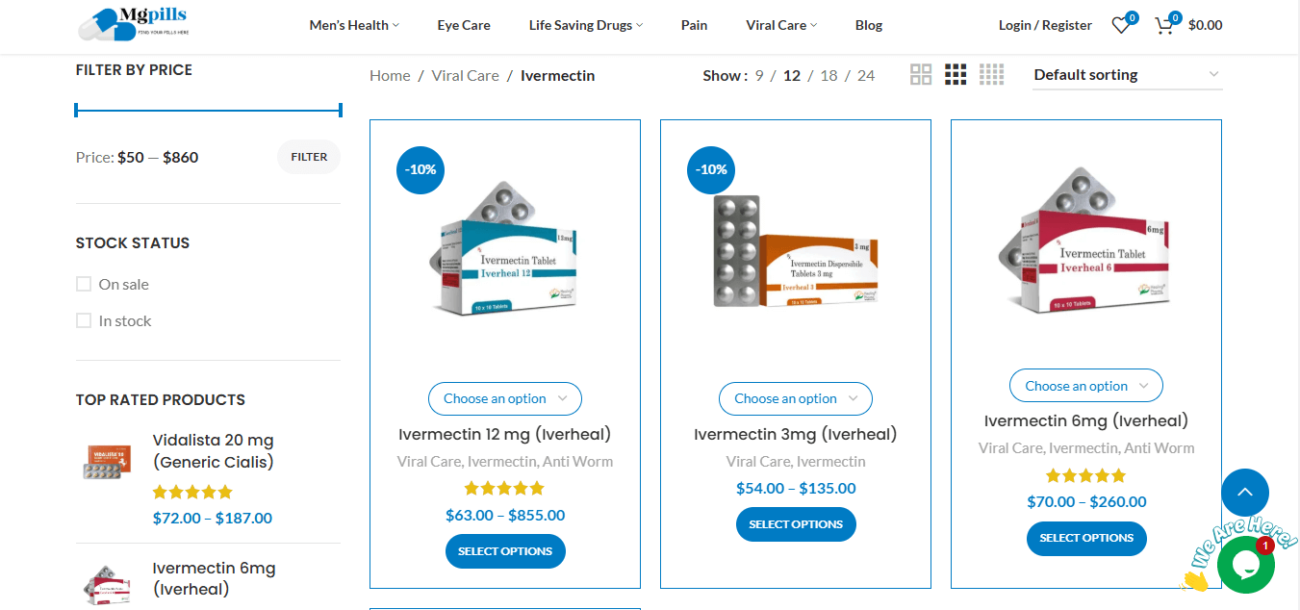
Looking for affordable Ivermectin (Stromectol)? Get it at MGpills.com with the best deals! ✅ Best Prices on Brand & Generics
✅ Free USA Shipping Over $199
✅ Secure Orders | 24/7 Support
✅ Refer & Earn!
📧 support@mgpills.com 🌐 mgpills.com
Conclusion
Ivermectin is an essential medication for treating parasitic infections and continues to be researched for potential benefits in conditions like cancer. While some studies suggest promising results, its use beyond approved treatments remains experimental. It is crucial to take Ivermectin only under medical supervision to ensure the correct dosage and avoid potential side effects. Additionally, purchasing from reputable pharmacies or authorized online sellers is necessary to prevent exposure to counterfeit or unsafe products.
FAQs (Frequently Asked Questions)
Q1: What is Ivermectin made from?
Ivermectin is derived from Streptomyces avermitilis, a naturally occurring bacterium.
Q2: How much Ivermectin should humans take?
The typical dosage is 150-200 mcg per kg of body weight, prescribed by a doctor.
Q3: Can I take liquid Ivermectin for humans?
Yes, but only under strict medical supervision.
Q4: Is Ivermectin safe for humans?
Yes, when taken at prescribed dosages. Avoid self-medication.
Q5: Where can I buy affordable and safe Ivermectin online?
You can buy Ivermectin affordably and safely from MGpills.com, a trusted online pharmacy.
